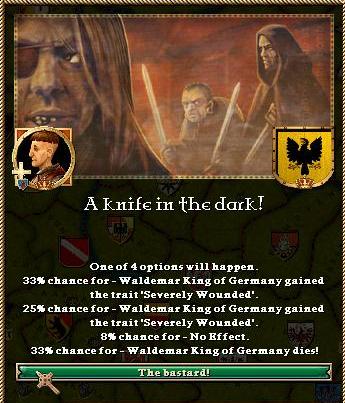Part 9: Crusader Kings: Chapter 9 - Eye of the Storm: 1114 - 1122
1114-1122: Eye of the Storm
In 1114, Germany is an oasis of calm in a turbulent world. To its south, the Duke of Sardinia has proclaimed himself to be King of Sardinia and Africa, and has launched a renewed campaign of aggression against the North African muslims, making large land gains in Tripoli.

On the British Isles, the independent Kingdom of Wales has succeeded in wresting nearly all of Wales from England, as well as gaining the Duke of Brittany as its vassal.

On the endless plains to the East, the Principiality of Pereyaslavl continues to expand at the expense of its pagan neighbours, and has now passed the Byzantine Empire in size and power. Seeing the value in fostering good relations between the Holy Roman Empire and the new leading power among the Orthodox christians, Waldemar arranges a marriage between his eldest daughter, who has just come of age, and a cousin of the Russian Prince.

In the Holy Lands, the title King of Jerusalem has been created and given to the second son of the Polish King, whose duties are now to rule and protect the holy city. A second holy order, the Templar Knights, is formed to protect the many pilgrims traveling to Jerusalem to visit God's Grave.
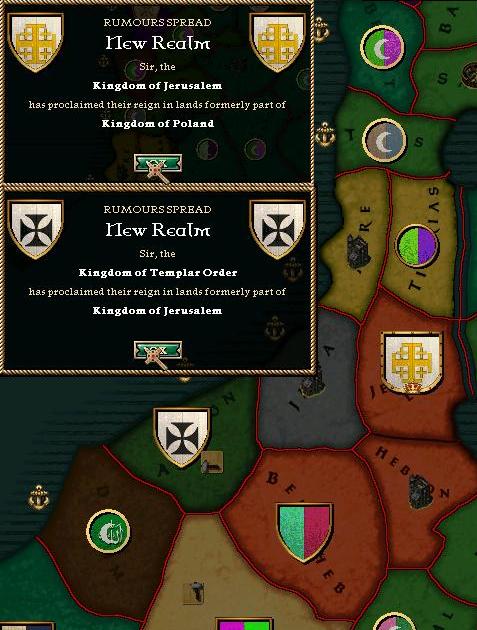
Decades of collecting Imperial tax revenues has given Waldemar time to spend plenty of it on building infrastructure, both in the royal demesne and Hohenzollern family lands. Now, construction begins on a Grand Imperial Palace in Milano, meant to house the growing court.
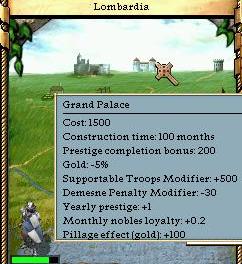
German culture continues to grow ever more dominant, as the Holy Roman Empire flourishes under Waldemar's rule.

All is not well in paradise, however. Waldemar is a highly competent Emperor, but his demeanour is still that of a petty tyrant, and he takes out much of his frustration over continually being denied a Papal coronation on his wife and children. The marriage between Waldemar and Eve was never one of love, and lately the Empress has begun to outright hate her husband.
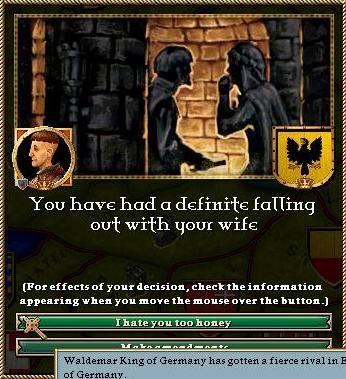
Italy sees trouble brewing in 1115. The Pope has excommunicated the King of Sicily over an unsanctioned divorce, and the stubborn sicilian monarch has responsed by declaring war on the Papal State. Sicilian troops have captured and looted Rome, and the Pope flees to Germany, petioning Waldemar for help. Not one to turn down an opportunity to put the Pope in his debt, Waldemar formally enters an alliance with the Papal State, and then, with the justification of protecting his ally, declares war on Sicily.
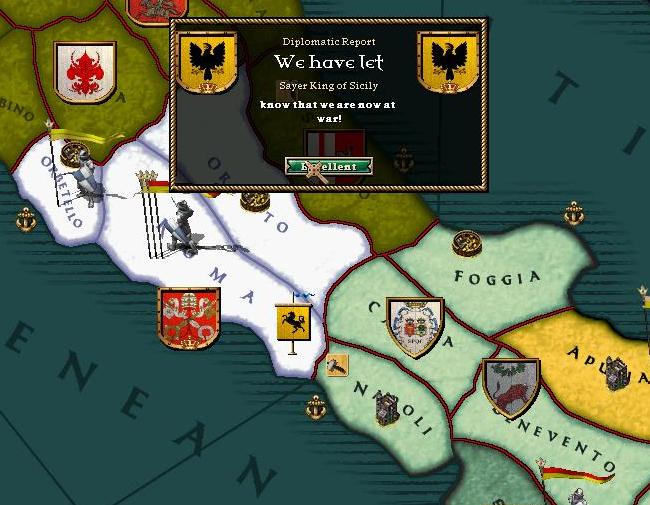
Troops are quickly raised from the empire's Italian vassals and thrown at the Sicilians. Outnumbered and scattered, they can do little more than delay the enemy, preventing them from seizing the entire Papal demesne.

The Sicilians prove a tough breed, and even with reinforcements of 10,000 men from the royal demesne, they continue to repel German attacks on Rome.

Dismayed at his failure to retake Rome, Waldemar orders more and more troops to be raised, throwing them at the Sicilians in a wasteless slaughter that can only be described as a pointless grudge.

Finally, Marshal Adalbert arrives along with the well-trained and highly disciplined Army of Milano, moving to attack the remains of the Sicilian army around Rome.

Diminished, exhausted and outnumbered, the Sicilians retreat at last, and Rome is retaken.

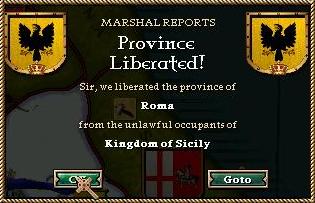
The retreat turns into a rout, and soon German and Papal forces push through Sicily, capturing Napoli and Foggia.

Salerno falls next. With his entire demesne in enemy hands and his army reduced to a couple thousand men, the King of Sicily has no option but to agree a harsh settlement. Waldemar takes Foggia, while the Pope gets Napoli and Salerno.

Shortly after returning to Milano, a courier arrives bearing some quite remarkable - and troubling - news. The King of Hungary has died without heirs, and the throne has gone to the son of his eldest daughter - the King of Bohemia. Bohemia now controls a massive stretch of land all the way from Germany to the borders of Byzantium, and the chances that the Czech Kingdom will ever rejoin the Holy Roman Empire seem remote at best.
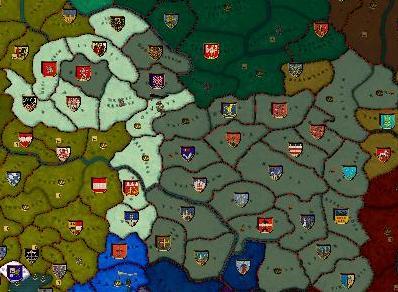
Wishing to keep relations with Bohemia cordial for now, Waldemar marries off his youngest daughter to the Bohemian King's nephew.
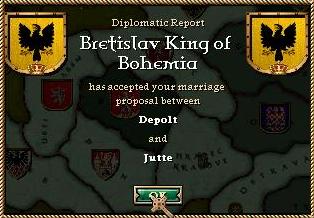
News have also reached court from the North. The Teutonic Order, under the leadership of Otto von Habsburg, has made considerable gains on the pagan rulers in Lithaunia, carving out a demesne of four provinces.
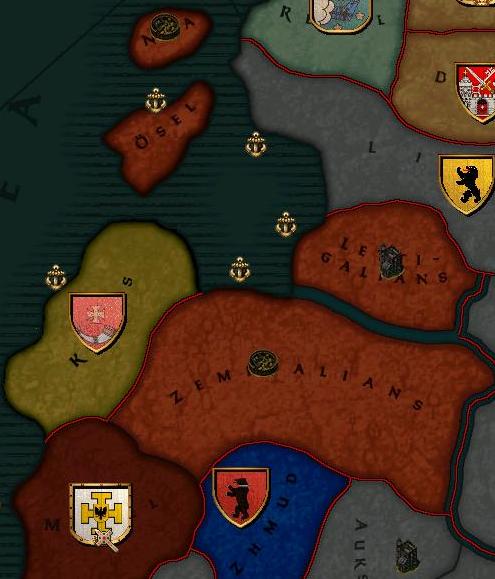
A war is sparked in the north in 1118, as the Duke of Mecklenburg gets drawn into a Polish border conflict with Pommeranian pagans, which results in a declaration of war between the two-province Tribe of Pommerania and the Holy Roman Empire.
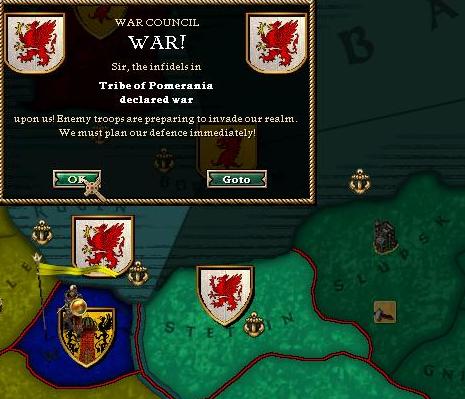
The outcome is given.
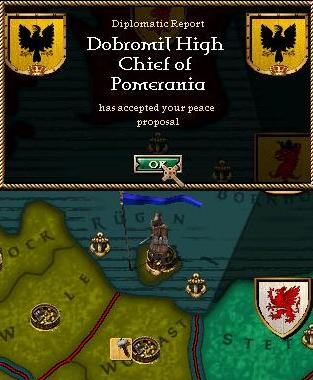
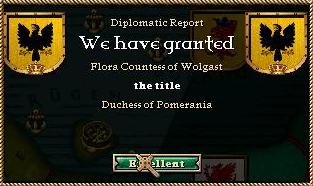
Waldemar's only surviving son, Otto, has reached majority. He is a modest, indulgent and suspicious young man. With no grasp of tactics or intrigue, diplomatic talents that are mediocre at best, and an ability to spend money that outweighs his ability to earn it many times over, he is anything but a worthy successor to the Hohenzollern name, but he is the only one there is. The general opinion spoken when the Emperor is not listening is that it is a fortunate thing that he cannot inherit the crown from his father. Regardless, he is old enough to rule, and thus the Hohenzollern lands of Swabia-Baden are given into his care.
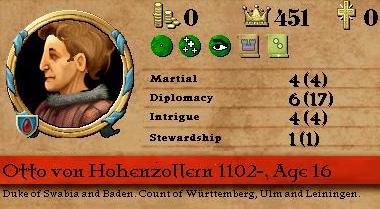
Using the influence he gained during the war with Sicily, Emperor Waldemar has built a strong base of support in the Curia. So strong, in fact, that some say that where the Pope once led and Waldemar followed, Waldemar now leads and the Pope is the one doing the following.
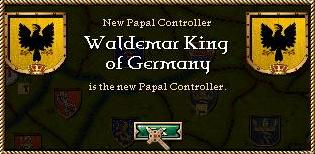
In March of 1120, Emperor Waldemar finally sees his dream come true, as the Pope agrees to crown him Emperor of all Romans. The ceremony is long, lavish and costly, and a grand tourney without like is held in Milano afterwards.
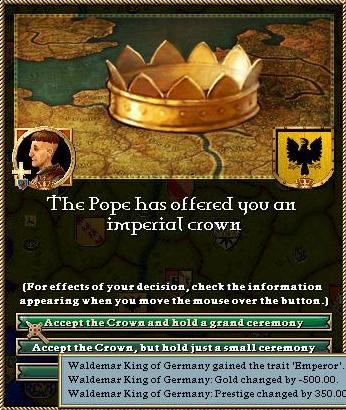

Perhaps weakened by too many late-night celebrations, the 40-year old Waldemar comes down with a serious illness in April that leaves him bedstricken for several weeks.
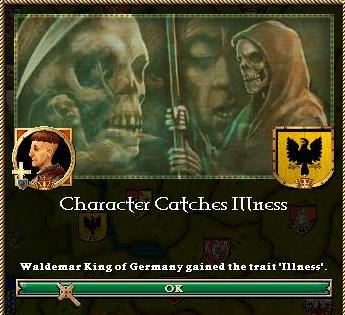
When he finally gets well enough to return to the duties of rulership, he seems a changed man. He is far from young anymore, indeed, he has already lived longer than his father did. Otto cannot inherit Germany, and he knows that the Grand Duke of Carinithia, a bitter enemy of the Hohenzollern family, is poised to become Emperor, having amassed considerable support in the electorate. The power base Waldemar has built up as Emperor is immense, and putting it into the hands of an enemy goes against the very fiber of a Hohenzollern's being.
Waldemar feels that his life's goals are fulfilled, and that it is time he prepare for a future where my successors must bow their heads to another dynasty's ruler. Giving any part of the royal demesne to a member of his own dynasty would likely be met with open revolt, and with that in mind, he issues several royal decrees that divides most of the royal demesne between rulers friendly to the Hohenzollerns, limiting the King's own land to the immediate area around Milano.
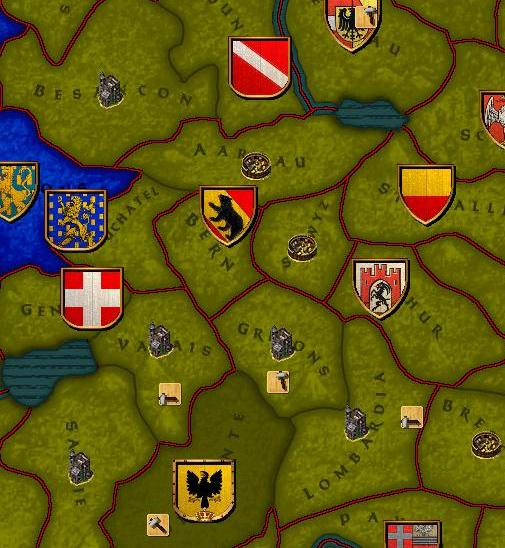
The Grand Imperial Palace stands complete shortly after the division of land is finished, and Waldemar moves from Sundgau to Milano with his court. He does not bother bringing along Empress Eve, who he has long since ceased giving any official duties whatsoever. Instead, she is placed on the same quiet Hohenzollern manor that Adalbert spent most of his youth holed up in.
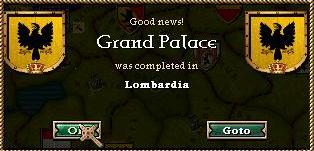
She does not live to see the end of the year, taking her own life in November of 1120.
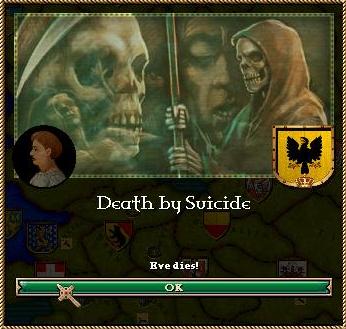
If Waldemar's mistreatment of his wife was mostly overlooked by his vassals, his choice of a new wife is met with raised eyebrows and some degree of indignation. Instead of taking a wife that would strengthen the political ties of the Hohenzollerns and the Empire, Waldemar marries his mistress of several years, the daughter of the Count of Verdun.
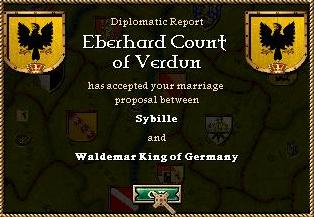
A marriage that offers no political gain for Waldemar, it is instead a rare thing indeed: A marriage of love. Waldemar genuinely loves his young mistress, and their marriage soon results in a little girl by the name of Konstanze.
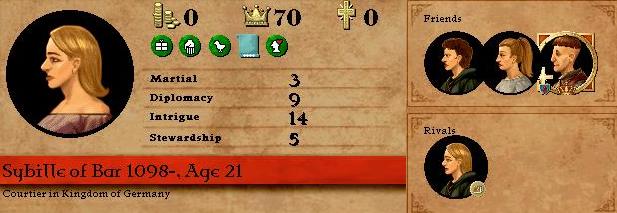
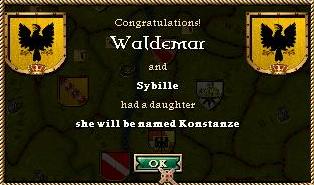
Two quiet years pass by, as Waldemar seems content to sit in Milano, handle matters of state, and dote on his wife, letting the world outside Germany handle itself best as it can. All the while, many of the concessions that Emperor Waldemar made to the Pope are rolled back, despite lame protests from Rome.
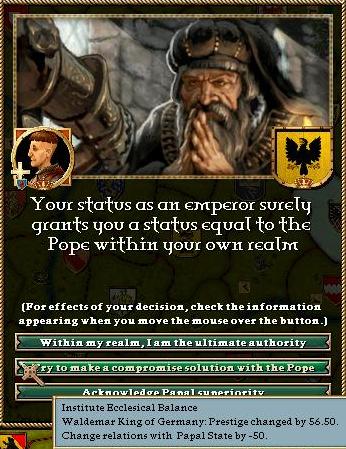
As the year 1122 neared its end, Emperor Waldemar was at peace with himself, in reasonably good health, and presiding over an realm that had not seen a revolt in almost a decade. To his subjects, it seemed as if he would continue to bring the Holy Roman Empire peace and prosperity until the end of his natural life.
So it seemed.
